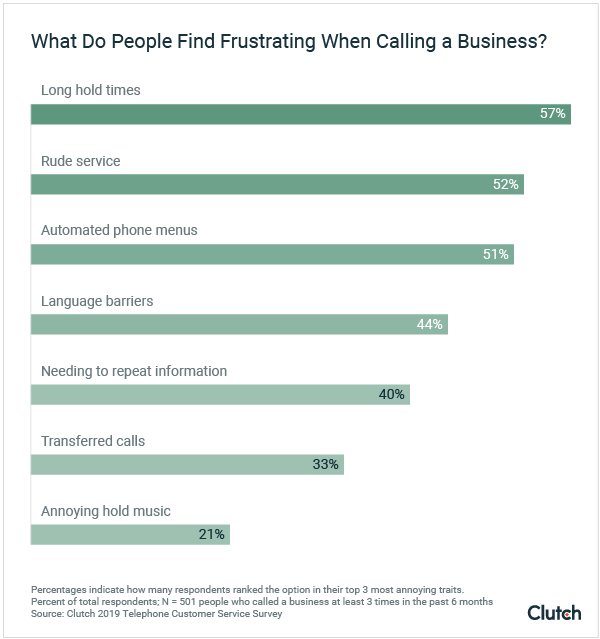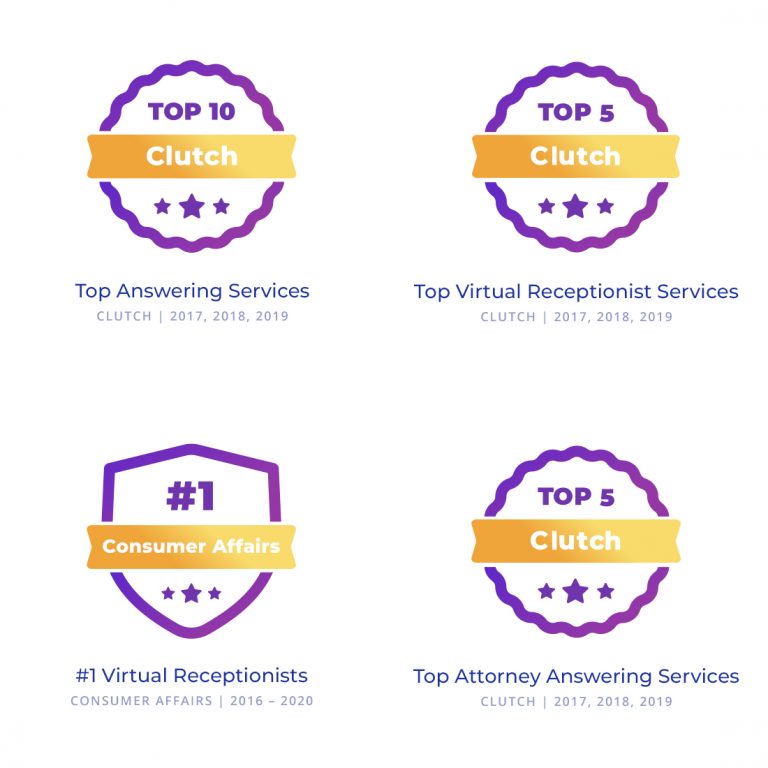Customers most dislike being kept on hold and appreciate an efficient resolution to their issue when calling businesses, according to a new survey from Clutch, a B2B research, ratings, and reviews firm in Washington, D.C.
Clutch surveyed more than 500 consumers that had called a business more than three times in the past six months. Abby Connect’s CEO Nathan Strum spoke to Clutch about the data, providing industry context.
When asked to rank their top 3 issues with telephone customer service, 57% included “being kept on hold.” In today’s increasingly digital world, consumers understand that their time is precious and that businesses shouldn’t waste it, even with a traditional communication channel like the phone.

For example, customers will only wait 2 minutes on hold with a business before hanging up.
Oppositely, when asked to rank the top 3 traits they value when calling a business, nearly 8 in 10 included an “efficient resolution to their issue.”
Overall, the survey shows that when it comes to telephone customer service, speed must be kept top of mind.
Phone Communication Remains Critical
Nowadays, consumers often have multiple channel options for contacting a business, from email to chat bots to contact forms. Yet, the phone remains important for resolving many issues.
The phone offers one of the most individual-oriented communication channels. This is especially important for people with personalized requests.
“When people are trying to fix something, a cookie cutter approach isn’t always the fix because people like to feel unique and that their problems are unique,” Strum explained.
Some consumers may have issues with simple answers, but they want to feel heard by the business.
“Even if there is a cookie cutter answer to their problem, they’re not necessarily going to believe that’s going to fix their problem.”
Other communication channels may try to repeatedly route consumers through a method they’d already tried to solve their issue.
“How many times have you contacted or chatted a business about a specific issue and they send you a link to their FAQ page? Well, now you’re annoyed because you already checked that and didn’t find the answer or otherwise you wouldn’t be contacting them.” Strum said. “It’s frustrating for people who don’t think [their issue] falls into a certain category, even if in the end it might. They just want to feel heard and confident they found the right answer.”
Businesses Should Audit Their Resources
Businesses often lack quality telephone customer service because they don’t have enough resources to meet their customers’ demands.
Businesses should use data to thoroughly understand what customers experience when they call in. From there, they can determine what resources they need.
“If [a business] can find a way to determine how long their customers are kept on hold and at what times, they might have a better understanding of how to staff or when to use an alternative service for the overflow,” said Strum.
Types of questions to explore include:
- Exactly how long do customers spend on hold?
- When is the business receiving the most calls?
- What questions are customers calling with?
- Does a particular department need more telephone customer service resources than others?
From there, businesses can explore whether they need to hire more in-house resources, or if they should outsource to third-party answering services or virtual receptionists.
Outsourcing can often provide high-quality services at a cheaper price than the cost of hiring in-house. You also only need to pay for the services when you actually need them.
Overall, Clutch’s survey emphasizes the importance of increasing efficiency when it comes to answering customer calls. Businesses must ensure they are making the experience of a customer call as quick and high-quality as possible.
